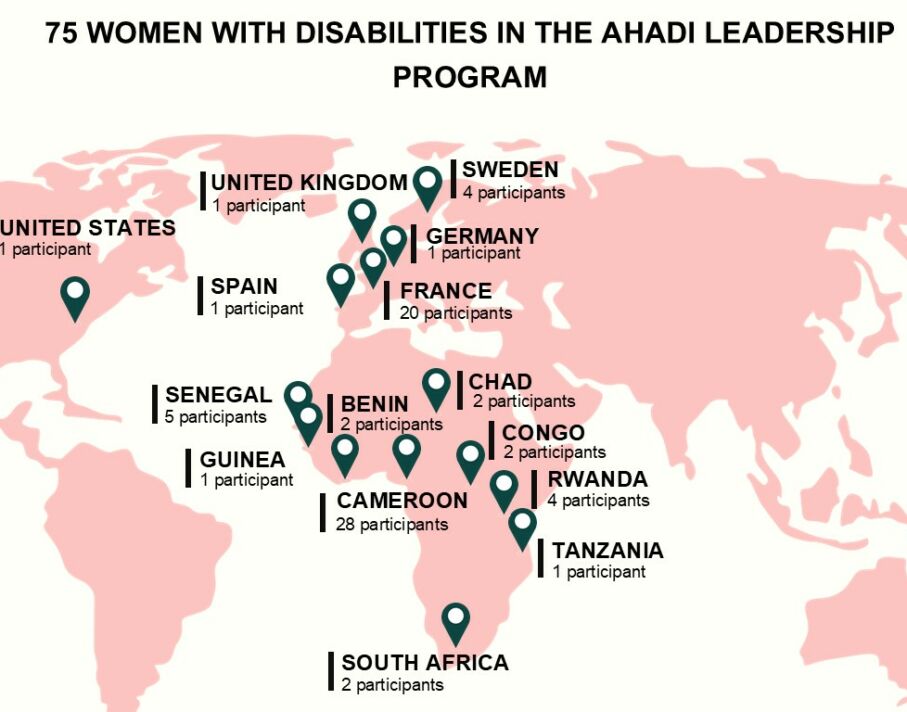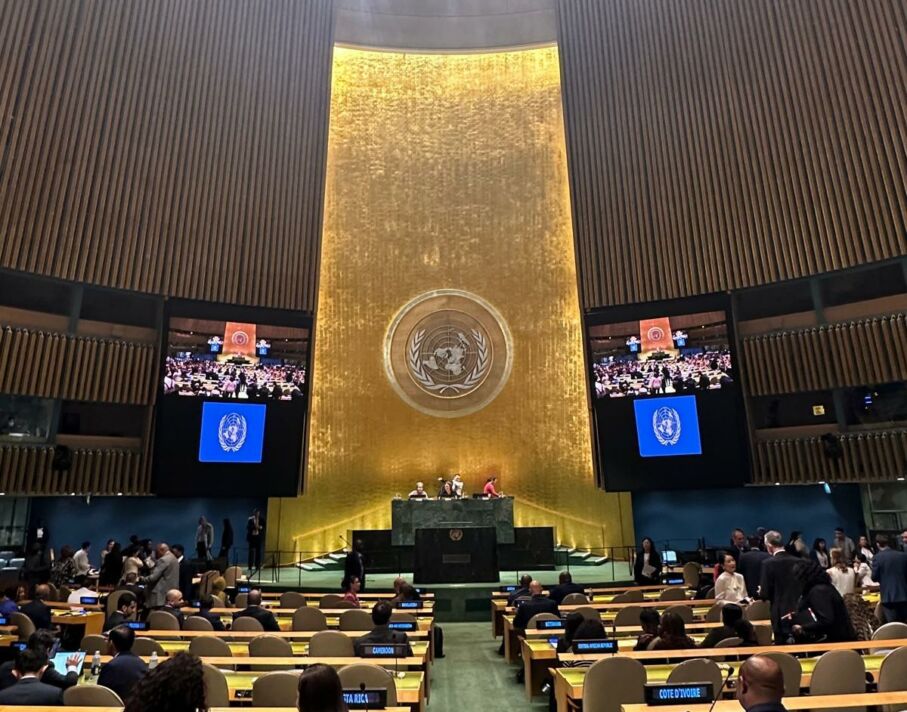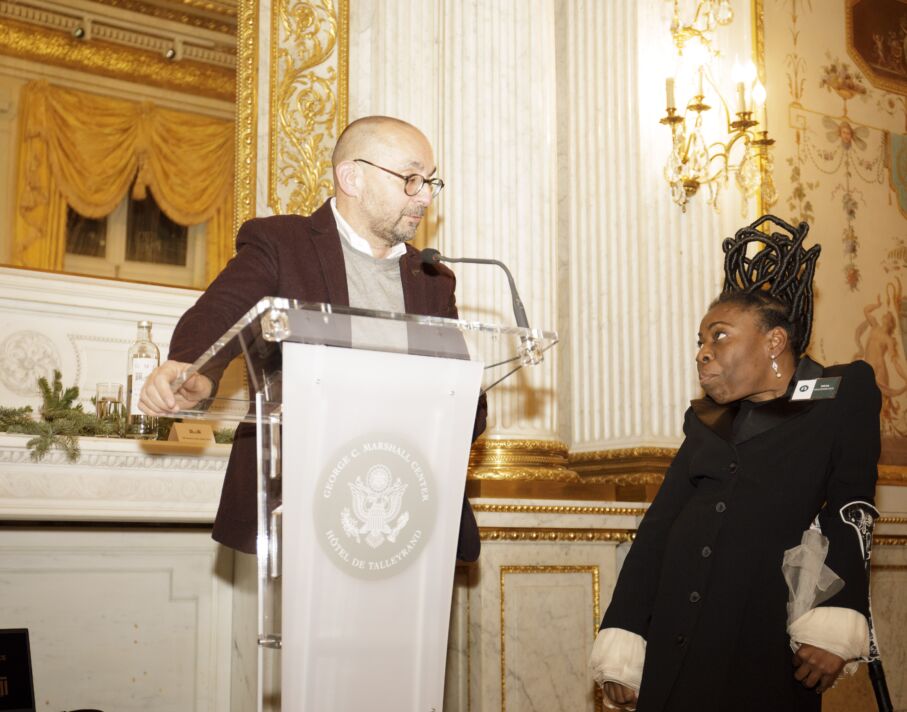In January 2025, the AHADI Leadership program brings together 75 exceptional women from 15 different countries, showcasing a rich diversity of backgrounds, experiences, and expertise. These women represent a powerful and multifaceted model of leadership, spanning various sectors such as entrepreneurship, diplomacy, finance, and political engagement. Their actions and ambitions demonstrate a readiness to turn challenges into opportunities and build a more inclusive future.
Inspiring leadership profiles
Among our participants, 56% are executives holding strategic responsibilities in their organizations, 32% are entrepreneurs leading economic and social initiatives, and 13% are elected officials actively shaping public policy.
The program reflects this diversity. In Europe, 48% of participants are executives, 41% are entrepreneurs, and 10% are elected officials. In Africa, the majority of participants are executives (59%), 25% are entrepreneurs, and 16% hold political positions. These women lead in various industries, including artisanal fashion, agribusiness, finance, and even governmental ministries.

An international representation
The AHADI Leadership program fosters a global perspective, bringing together 47 women from Africa and 28 from Europe and the United States. Participants come from diverse countries such as Cameroon, Senegal, Rwanda, and others across the African continent. In Europe, most participants are from France and Sweden.
This international representation facilitates an exchange of experiences and best practices while deepening the understanding of the challenges faced by disabled women worldwide. The goal is to create an inclusive space where these women can share their journeys and amplify their impact, not only in their home countries but on a global scale.
Diverse and inspiring backgrounds
Participants in the AHADI Leadership program come from a variety of fields, exercising leadership in areas such as entrepreneurship, diplomacy, insurance, consulting, and political and social advocacy. They serve as role models for inclusion and women's leadership in a rapidly evolving world.
Some participants work in inclusive education, organize disability awareness conferences, or conduct research on disability inclusion. One participant has led groundbreaking research in physiology and regularly speaks at conferences to raise awareness about inclusion issues, particularly for individuals with sensory disabilities, such as deafness.
Others lead innovative businesses, from artisanal fashion to agribusiness, leveraging cutting-edge technology to address inclusion challenges. One entrepreneur founded a company that integrates data science and artificial intelligence to tackle accessibility issues for people with disabilities. A French participant launched a pioneering startup focused on accessible tourism, which she has expanded into Asia.
Strategic roles in major organizations
In addition to entrepreneurship, several participants hold leadership positions in renowned organizations such as PwC, within sectors including finance, insurance, consulting, journalism, and communication. Some also hold strategic roles in government ministries, particularly in health, culture, social affairs, and diplomacy.
One Swedish participant manages a team of 20 in the Legal Division of a government agency for equality, while a Senegalese participant leads a hospital. Another participant serves as head of the department for non-communicable diseases at Cameroon’s Ministry of Health.
Political engagement: A challange to overcome
Politics remains a sector where few disabled women engage, but this dynamic is beginning to shift. Several participants are now politically active at various levels: a parliament member in South Africa, a committee member at the departmental level in Senegal, a municipal councilor in a Paris district, and a neighborhood council representative in Cameroon.
These women advocate for public policies that make their cities more accessible and inclusive, with a strong focus on equal rights for people with disabilities. They also actively promote policies against discrimination, gender-based violence, and barriers to employment and essential services.
Women determined to change the world
The journeys of these women reflect an unwavering determination to drive societal change and advance policies for a more inclusive and equitable world. They are the catalysts for transformation in their communities, challenging inequalities and championing disability inclusion.
Through their leadership and advocacy, these women demonstrate that challenges can be turned into opportunities and that inclusion must become a global priority.
The AHADI Leadership Program: A catalyst for inclusive leadership
The AHADI Leadership program provides a unique platform for peer learning, skill development, and networking, empowering these women to strengthen their leadership, expand their influence, and amplify their impact. By participating in this program, they not only deepen their knowledge and connections but also gain visibility, ensuring that the voices of disabled women are heard on the international stage.
Our goal is to equip them with the tools and resources necessary to excel in their careers while showcasing their contributions on a global scale. By doing so, we create pathways for other disabled women at the beginning of their leadership journeys, offering them inspiring role models and making their leadership more visible.
This program highlights extraordinary women who, through theur journeys and commitments, transform challenges into opportunities and pave the way for a better, more inclusive world.



